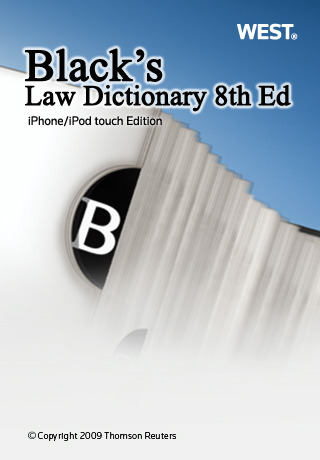Have you ever been conducting Internet research, ventured into the reader comments that accompanied a perfectly ordinary article or blog, and been shocked at the level of incivility exhibited by some readers? I’m not referring to pointless, silly, off-topic, dissenting comments (or the ever-present spam), but rather the kind of comments that make you cringe and suddenly regret wasting your time by spending it in the company of so much litter. Such comments are especially jarring when embedded in an otherwise engaging and generally thoughtful discussion. Some readers, apparently empowered by anonymity and with too much time on their hands, feel compelled to use online comments to vent their innermost hatred for, well, pretty much anything. It’s not new, but it is a disappointing trend that detracts from what otherwise serves as a productive forum for sharing information and opinions; one that is often helpful to researchers. As a result, many online publications have stopped allowing comments, appointed moderators, or now require readers to register before posting comments. Despite all the noise, I still value the occasional comment that leads to a great resource or an elusive answer. The rest just keeps boredom at bay.
“The primary legal materials of the United States are the raw materials of our democracy. They should be made more broadly available to enable an informed citizenry.”
From Law.gov’s declaration and 10 supporting principles. Here are the 10 principles, in my words:
- No direct fees for accessing the law. (Indirect fees, primarily taxes, are preferred because the cost of providing access is shared by many.)
- Copyright on legal materials must be done away with; this practice limits access. (Some states and local governments assert copyright on their laws!)
- People should be able to download the law in bulk (e.g., the entire U.S. Code, not just a section here and there.)
- Online law needs to be authenticated so we can trust that it hasn’t been messed with by mischievous or angry hackers (or worse).
- Old stuff is important too! Earlier versions of the law need to remain online in a stable location.
- We shouldn’t be required to cite to commercially-produced versions of the law, which creates a burden for those who don’t have access to Lexis or Westlaw.
- We need good technical standards for online versions of the law. We need some uniformity in those standards.
- Governments need to make the law available in a format that can be processed by computers. That way web designers can use the law to develop useful Web sites. The law also must be the official, definitive version.
- Government needs to fund research into the challenges of putting the law online, including privacy issues.
- Some government entities, especially at the state and local level, need help complying with these principles. We need a program to educate and train them.
Click here for more on Law.gov.
 Our own Professor Bob Hillman and his collaborator Professor Maureen O’Rourke of the Boston University School of Law have a forthcoming article on the law of software contracts, which is available on SSRN’s Legal Scholarship Network (LSN). Professors Hillman and O’Rourke are not new to the topic: they are the Reporter and Associate Reporter for the American Law Institute’s (ALI) Principles of the Law of Software Contracts. The Principles have been years in the making with a discussion draft submitted to the ALI back in 2007. ALI membership unanimously approved the final draft in May 2009. The current law of software contracts is a messy patchwork drawing from federal intellectual property law, common law, and Article 2 of the Uniform Commercial Code. Thus, the Principles project seeks to “clarify and unify the law of software transactions” by addressing issues of contract formation, enforcement of terms, automated disablement, and contract interpretation, among other issues.
Our own Professor Bob Hillman and his collaborator Professor Maureen O’Rourke of the Boston University School of Law have a forthcoming article on the law of software contracts, which is available on SSRN’s Legal Scholarship Network (LSN). Professors Hillman and O’Rourke are not new to the topic: they are the Reporter and Associate Reporter for the American Law Institute’s (ALI) Principles of the Law of Software Contracts. The Principles have been years in the making with a discussion draft submitted to the ALI back in 2007. ALI membership unanimously approved the final draft in May 2009. The current law of software contracts is a messy patchwork drawing from federal intellectual property law, common law, and Article 2 of the Uniform Commercial Code. Thus, the Principles project seeks to “clarify and unify the law of software transactions” by addressing issues of contract formation, enforcement of terms, automated disablement, and contract interpretation, among other issues.
Now, while software and software law may seem mundane in today’s digitally-driven world, the Principles have not been without controversy, especially in the areas of indemnification and warranties. Specifically, section 3.05, “Other Implied Quality Warranties,” has garnered attention. The section creates a non-excludable implied warranty that “the software contains no material hidden defects of which the transferor was aware at the time of the transfer.” Software providers have expressed concern over the phrase “material hidden defects” and the meanings of the individual words. There is a fear that litigation against them will increase. Professor Hillman addresses the issue of section 3.05 in a thorough blog post last summer. It is worth a read and there are several comments that readers should consider, too. They highlight the notion that exciting controversy is not just the domain of constitutional law cases at the Supreme Court!
 iPhone, iPod touch, and now iPad apps for legal research have been picking up steam, and a small variety of apps are currently available. Of course, none of these are useful to you if you have a Droid, a Blackberry, or a Palm Pre. Also how useful these are depends on how mobile you are and whether you want/need/like access to resources that your laptop with Wi-Fi can’t provide.
iPhone, iPod touch, and now iPad apps for legal research have been picking up steam, and a small variety of apps are currently available. Of course, none of these are useful to you if you have a Droid, a Blackberry, or a Palm Pre. Also how useful these are depends on how mobile you are and whether you want/need/like access to resources that your laptop with Wi-Fi can’t provide.
One prominent app is Black’s Law Dictionary, which West released in April 2009. The upsides include:
- Speed-it’s fast
- Auto-complete feature helps you find the words you’re looking for
- Audio pronunciation for 7,000 words, so you will never embarrass yourself again by mispronouncing a term
- You don’t need the Internet to access
- Links to other words and resources in Westlaw (e.g., Corpus Juris Secundum) if you have an account (but you may have to pay to use them, depending on your plan)
- Portability, of course!
The downsides:
- The price is steep for an app–$49.99–which won’t be worth it for many who already have access to Black’s through Westlaw or in print
- App is for the 8th edition of Black’s, but West published the 9th edition last summer (no word yet on if and when West will release an app for the 9th edition)
- Text does not resize itself when you zoom in
- No browsing words alphabetically
By the way, don’t confuse the iPhone app with Black’s Law Dictionary Digital. The Digital version consists of a toolbar you download to your computer to use in Microsoft Word, Internet Explorer, and Mozilla Firefox. The toolbar links you to the online version of Black’s in Westlaw, and will provide spell-checking of legal terms in Word. This tool is not something I find useful since I can add legal terms to the spell checker the first time it finds them and the toolbar does not make it much faster or easier to retrieve Black’s in Westlaw or from my bookshelf.
For a more detailed review of the Black’s app, see Jeff Richardson’s Review: Black’s Law Dictionary for iPhone on iphonejd.com; also see the reviews from users in iTunes.
If you don’t want to pony up $50 for Black’s Dictionary, never fear: free law dictionary apps are also available and will be the subject of a future post.




